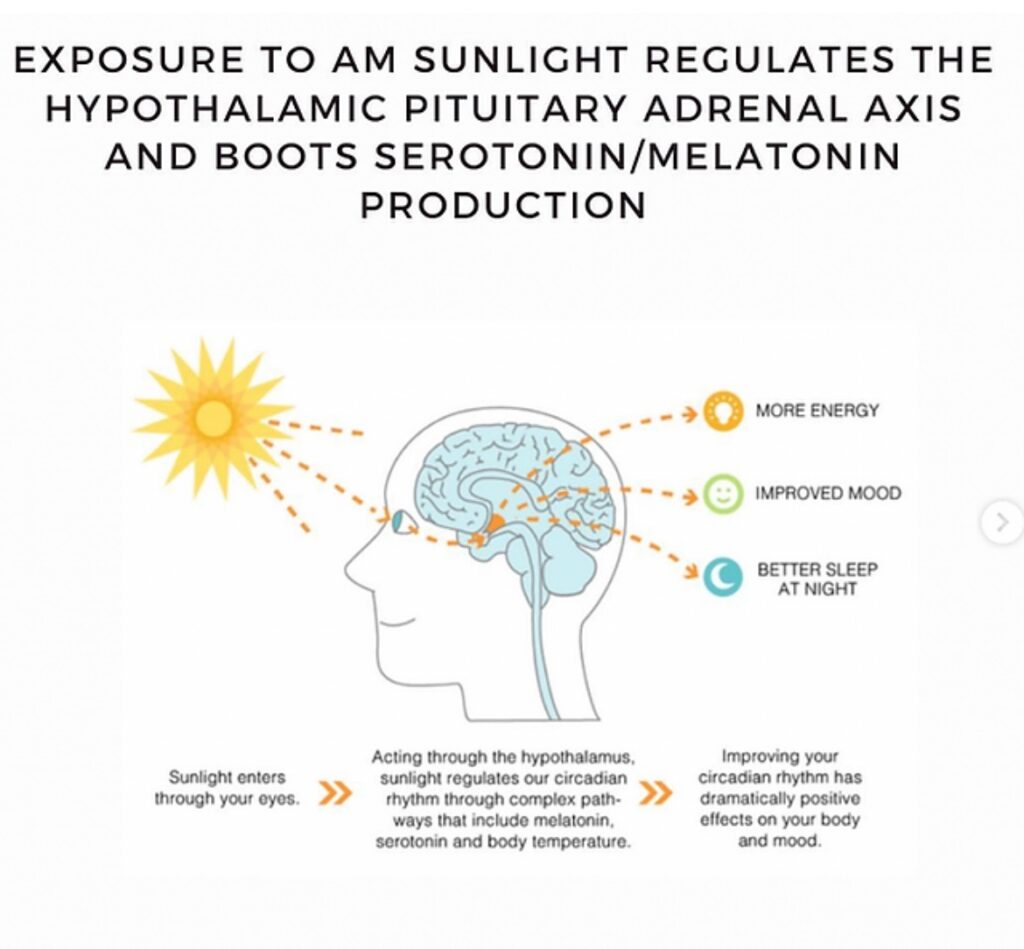Why Morning Sunlight Is Your Secret Weapon for Better Sleep with Menopause
When it comes to improving sleep, most people think about cutting down on caffeine, winding down with a good book, or creating the perfect cozy environment. But did you know that one of the simplest and most effective ways to boost your sleep is actually to get some sunlight in your eyes first thing in the morning? For women going through menopause, a time when sleep disruptions are common, this practice could be a game-changer. Let’s break down the science and why a morning dose of sunlight may be the boost you didn’t know you needed. Understanding the Circadian Rhythm and Why It Matters The human body has an internal clock, known as the circadian rhythm, which tells us when to wake up, when to eat, and, importantly, when to sleep. This rhythm is influenced heavily by external factors, with light being one of the most crucial. The circadian rhythm is regulated by a part of your brain called the hypothalamus, a small but powerful area that controls numerous functions like hormone release, hunger, and temperature regulation. By exposing your eyes to sunlight first thing in the morning, you’re sending a strong signal to your hypothalamus that it’s time to wake up, which sets off a chain reaction in your body. For women in menopause, a time when fluctuating hormones can interfere with sleep quality, maintaining a strong circadian rhythm can be particularly valuable. Morning sunlight can help your body get back on track, regulate those hormones more effectively, and create a stable foundation for better sleep. Morning Sunlight and Serotonin: The Mood and Sleep Connection When morning sunlight hits your eyes, it triggers a release of serotonin, often called the “feel-good” hormone. Not only is serotonin important for regulating mood, but it’s also crucial for sleep. Here’s the interesting part: serotonin doesn’t just lift your mood during the day; it also acts as a precursor to melatonin, the hormone that signals your body it’s time to sleep. Melatonin production ramps up as it gets darker in the evening. However, the foundation for a strong melatonin response at night starts with a good dose of sunlight in the morning. So, by simply spending 10-15 minutes outdoors in natural light first thing, you’re setting up a healthy serotonin boost that helps you feel more alert during the day and prepares your body for restful sleep at night. It’s a natural way to improve mood and balance sleep without the need for medications or supplements. The Benefits for Women Over 50 Many women in their 50s and beyond experience changes in sleep patterns, often related to menopause. Hot flashes, hormonal imbalances, and mood fluctuations can lead to sleep disturbances. And let’s be real—when you’re not sleeping well, it can feel impossible to manage the day with confidence, energy, and focus. That’s where this simple practice of morning sunlight exposure can be transformative. How to Start a Morning Sunlight Routine Starting a morning sunlight routine doesn’t require any fancy equipment or a big chunk of your day. In fact, it’s a perfect example of a small habit with big benefits. Here’s how to make it happen: For TJ’s clients who may be grappling with the stress of menopause or finding it hard to create routines, this simple ritual can offer more than just better sleep; it can provide a sense of control and empowerment, one morning at a time. Other Lifestyle Tips for Better Sleep While morning sunlight exposure is powerful, TJ also emphasizes a holistic approach. Here are a few additional tips to support your sleep quality naturally: Embrace the Process: Keep Going, Keep Growing Building a morning sunlight routine can be a powerful addition to your wellness toolkit, especially when you’re navigating the changes of menopause. It’s not about making huge, overwhelming changes but rather about incorporating small habits that support your body’s natural rhythms. Sleep is foundational to health, impacting everything from energy levels to mood and immune function. By investing in your morning sunlight routine, you’re supporting better sleep, a more balanced mood, and a natural way to manage menopausal symptoms. Remember, the journey to optimal health doesn’t need to be complex—often, the most powerful solutions are the simplest ones.

